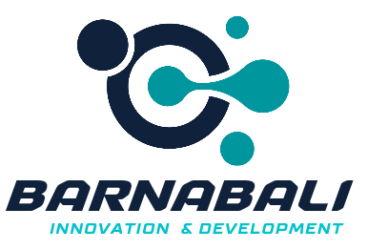Market Research and Lead Generation: Driving Business Success
In today’s digital age, market research and lead generation are critical components for driving business success. Leveraging advanced digital tools and analytics, businesses can gather insightful data about market trends, customer preferences, and competitive landscapes. This data-driven approach not only aids in making informed decisions but also helps in crafting strategies that are aligned with market demands.
Conducting market research has evolved significantly with the advent of digital technology. Traditional methods are now complemented by online surveys, social media analytics, and data mining. Online surveys offer a cost-effective way to collect large volumes of data, providing insights into customer satisfaction and preferences. Platforms like SurveyMonkey and Google Forms are popular for their ease of use and robust analytics features. Social media analytics, on the other hand, allow businesses to monitor real-time conversations and trends. Tools like Hootsuite and Brandwatch enable companies to analyze customer sentiments and engagement, offering a deeper understanding of market dynamics.
Data mining, a process of discovering patterns in large datasets, is another powerful method for market research. By utilizing algorithms and statistical models, businesses can uncover hidden patterns and correlations that inform strategic decisions. Technologies such as BigML and RapidMiner are instrumental in this regard, providing sophisticated data mining capabilities that drive actionable insights.
Lead generation, the process of attracting and converting potential customers, is equally crucial in the digital marketplace. Digital marketing techniques like email marketing, search engine optimization (SEO), content marketing, and social media advertising play a pivotal role. Email marketing platforms such as Mailchimp and Constant Contact enable businesses to reach targeted audiences with personalized campaigns. SEO strategies, focusing on keyword optimization and quality content, enhance online visibility and attract organic traffic.
Content marketing, through blogs, videos, and infographics, engages audiences by providing valuable information, thereby nurturing leads. Social media advertising on platforms like Facebook, LinkedIn, and Instagram offers targeted ad placements that maximize reach and conversion rates. Real-world examples, such as HubSpot’s inbound marketing strategies or Airbnb’s social media campaigns, illustrate the effectiveness of these methods.
In conclusion, leveraging digital technology for market research and lead generation is indispensable for business growth. A data-driven approach not only improves market understanding but also enhances customer acquisition, ensuring sustained success in the competitive digital marketplace.
Commercial and Logistics Documentation: Streamlining Export & Import Business
In the realm of international trade, commercial and logistics documentation plays an indispensable role in ensuring seamless and efficient operations. Accurate and timely documentation is fundamental to the export and import business, as it helps prevent delays, mitigate legal risks, and facilitate smooth customs clearance. Various types of documents are required for international trade, including invoices, bills of lading, certificates of origin, and customs declarations. Each of these documents serves a specific purpose and must comply with stringent regulations to ensure legitimacy and transparency in cross-border transactions.
Invoices provide detailed information about the goods being traded, including descriptions, quantities, and prices. Bills of lading are critical for the shipment of goods, acting as a receipt for cargo and a contract between the shipper and carrier. Certificates of origin authenticate the country of manufacture and are often required to determine tariff rates and comply with trade agreements. Customs declarations are essential for informing customs authorities about the goods being imported or exported, ensuring adherence to regulatory requirements.
Digital technology has revolutionized the documentation process in international trade. The adoption of electronic documents and digital signatures has made it easier to manage and store critical information securely. Automated documentation systems further streamline the process by reducing manual entry errors and expediting the preparation and submission of required documents. These technological advancements not only enhance accuracy and efficiency but also improve compliance with international trade regulations.
Businesses can enhance their documentation processes through practical measures such as implementing electronic data interchange (EDI) systems, which allow for the seamless exchange of documents between trading partners. Utilizing blockchain technology can also provide an immutable ledger for verifying the authenticity and integrity of trade documents. Additionally, investing in comprehensive training for staff on the latest digital tools and regulatory requirements is crucial for maintaining high standards in documentation practices.
Examples of best practices in commercial and logistics documentation include the use of integrated software solutions that consolidate various documentation tasks into a single platform, enabling real-time tracking and updates. Companies can also benefit from partnerships with specialized service providers who offer expertise in managing complex documentation requirements. By leveraging these innovative solutions, businesses can optimize their export and import activities, ensuring compliance and enhancing their competitive edge in the global market.

